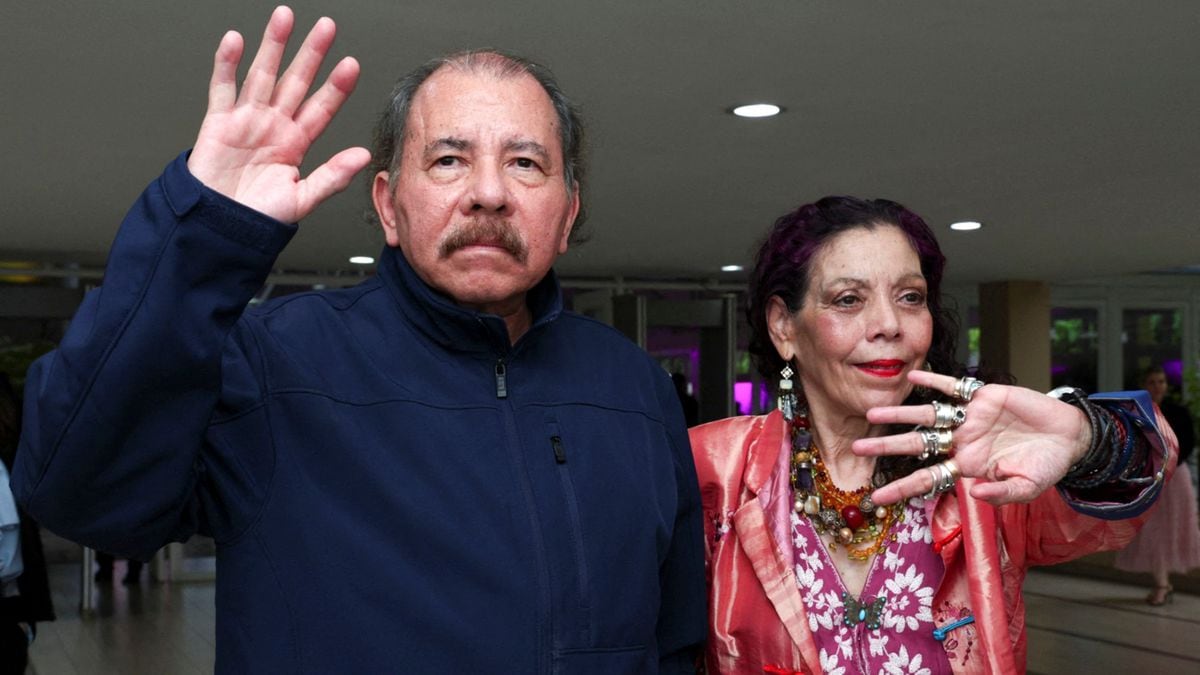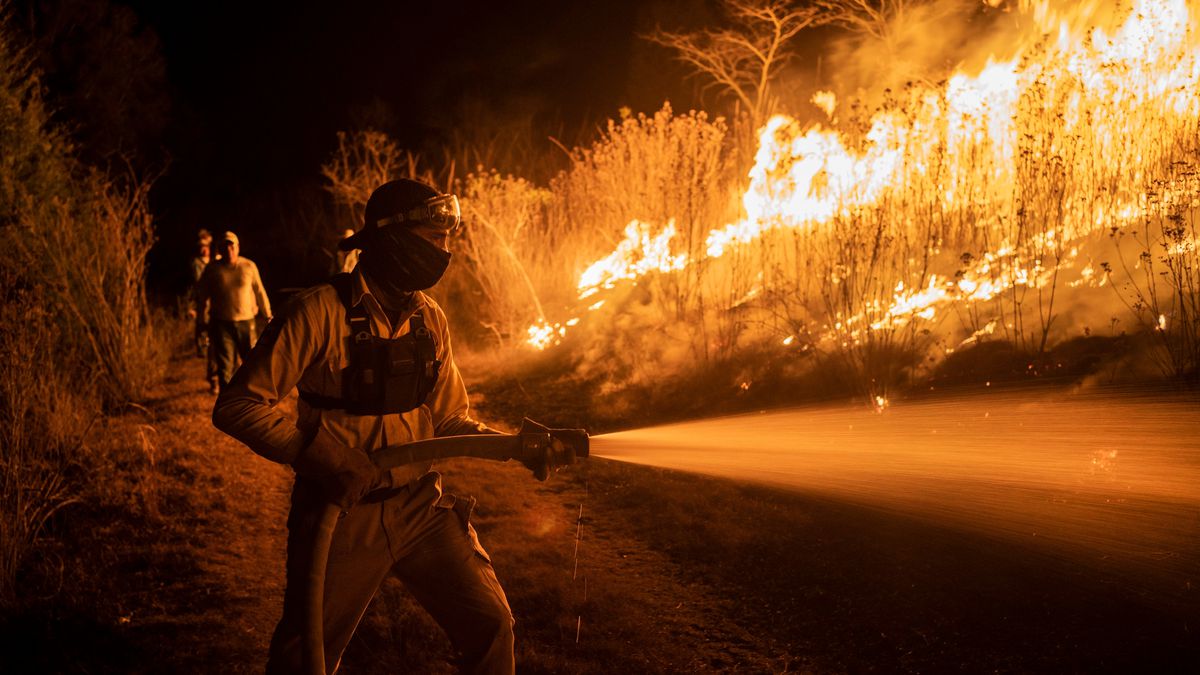The Board of Directors of the Parliament of Nicaragua, this Tuesday, in Managua.Jorge Torres / EFE
The Government of Daniel Ortega continues to undermine freedom of expression in Nicaragua: this Tuesday the Parliament loyal to Sandinismo approved the so-called Special Law on Cybercrimes, whose main purpose is the criminalization of publications in independent media and social networks with prison sentences that they range from one to ten years.
The regulation, known as the
gag law
, not only affects reporters, but also citizens in general who pour out anti-government criticism on digital platforms.
The Cybercrime Special Law is part of a legislative trident promoted by the Sandinista regime and that, according to its critics, is designed to silence dissident voices that denounce the constant human rights violations that are committed in this Central American country.
Less than 15 days ago, the Nicaraguan government approved the Foreign Agents Law, which blocks international funding and donations to civil society, NGOs, journalists and, especially, to opponents to limit their political organizing activities.
Meanwhile, after the approval of the cybercrime law this Tuesday, the third rule of the trident was pending in the legislative pipeline, which will impose life sentences to "punish hate crimes" that Ortega blames on his detractors.
What has attracted the most attention with the approval of the cybercrime law is that it is the government itself that will determine when a journalist, media outlet or a citizen publishes a “false news”.
The argumentation of the law is written in the same tone that Ortega and his wife, the vice president, Rosario Murillo, use to publicly discredit allegations of human rights violations or journalistic investigations.
"Whoever, using information and communication technologies, publishes or disseminates false and / or misrepresented information, which causes alarm, fear, anxiety in the population, or a group or sector of it, a person or their family, will a penalty of two to four years in prison and a fine of 300 to 500 days ”, reads article 30 of the regulations, in the following paragraphs it raises the penalty to five years in prison.
“The approval of this law constitutes a form of hardening of the rulers' relations with the press.
A measure aimed at silencing voices, which goes beyond its borders to register in a larger universe: the Nicaraguan society as a whole, ”media specialist Guillermo Rothschuh told EL PAÍS.
The regulations also impose penalties of five to nine years in prison for publishing leaks of government information, a recurring journalistic practice in a regime of zero public information.
“I don't think it will stop the leaks, they have always existed historically in Nicaragua.
Covering that gap is almost impossible.
Nor do I believe that journalism adverse to the government is going to back down.
So at least their most visible faces have expressed it.
The silencing of a people is a failed task.
This is confirmed by our past and recent history, ”Rothschuh insisted.
"The law establishes espionage"
Another controversial article of the law is Article 39. It says that the Government may oblige Internet service providers in Nicaragua to “collect, extract or record data relating to a user, as well as data traffic in real time, to through the application of technological measures ”.
"This law establishes de facto structures and mechanisms of espionage," warned lawyer Vilma Núñez, president of the Nicaraguan Center for Human Rights (CENIDH).
From a technical point of view, the Ortega regime could have little or no capacity to control the digital spectrum: the amount of information generated from social networks and websites is so great that the Government needs a millionaire investment, technological and human to be able to execute controls similar to China or Russia, according to journalist Néstor Arce, founder of
Divergentes
and a specialist in digital media.
In 2018, during the social protests in Nicaragua, the Israeli daily
Haaretz
published an investigation in which it revealed that the Ortega government bought spying and intelligence gathering programs from private technology companies in that country, in order to “locate and detain activists from human rights, persecute members of the LGBT community and silence the citizens they criticized ”.
“The Government could order internet service providers to restrict access to websites and social networks, placing URLs on a black list, as is the case in Venezuela or Cuba, for example.
In any case, the regime will continue to carry out its control and monitoring on a small scale as it has done, and increased, since 2018 through its territorial and neighborhood structures, in a very similar way, ”Arce explained.
However, the journalist remarked, the breadth of the law gives them the willingness to intervene and request information from natural and legal persons, and they will have to hand over their computer devices and access to the accounts that the regime considers under investigation.
“It is clear that the law seeks to stop the leakage of information from public agencies that help journalists to carry out investigations that reveal the mismanagement and corruption of State offices.
Likewise, define themselves what is false news and punish those who consider that they are committing it ", highlighted Arce.
"It is not only a threat to press freedom, but to the freedom of expression of each Nicaraguan citizen who publishes through their own digital media, be it social networks, blogs or messaging," added the director of
Divergentes
.
As approved by the Sandinista deputies, the cybercrime law will enter into force 60 days after its publication in the official newspaper
La Gaceta
.

/cloudfront-eu-central-1.images.arcpublishing.com/prisa/TTMFVYV62VBOHPBLR7DTRNSR2E.jpg)
/cloudfront-eu-central-1.images.arcpublishing.com/prisa/PAQIS6D7CZEUHHCO4FXIMU3CY4.jpg)



/cloudfront-eu-central-1.images.arcpublishing.com/prisa/TR3MCYPNXNCGBP24HQVCJPKEX4.jpeg)
/cloudfront-eu-central-1.images.arcpublishing.com/prisa/HLK7GOESWRBMZA2KE2VATJISN4.jpg)
/cloudfront-eu-central-1.images.arcpublishing.com/prisa/4J6Y7UV2XNCIJNQ4JDORPAPYX4.jpg)
